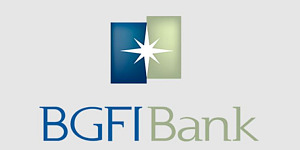Moody's has announced its latest outlooks for nine banking sectors across Africa, with four negative, three stable, and two positive.
The variations reflect local circumstances such as local operating conditions and expected trends in asset risk, capital and profitability among other factors
The outlooks for banking sectors in Egypt, Kenya and the West African Economic and Monetary Union (WAEMU) have changed to negative from stable, Moody's Investors Service said in reports today.
"In Egypt, deteriorating debt affordability and foreign-currency shortages across the economy expose the banks to the risk of further currency devaluation and interest rate hikes which will weigh on borrowers," said Constantinos Kypreos, Senior Vice President, Financial Institutions Group at Moody's. "Similarly in Kenya, despite solid economic growth, an array of challenges will weigh on borrowers' creditworthiness with an expectation that loan quality will continue to deteriorate. And our outlook for the sector in WAEMU reflects the region's elevated political risks, as we expect ongoing political transitions in Mali, Burkina Faso and Niger to weigh on business confidence, economic activity and credit demand. In addition, the normalising liquidity conditions in the WAEMU will reduce the banks' profitability."
The outlook for the Nigerian banking sector has changed to positive from stable as Moody's expects higher interest rates will widen the banks' net interest margins, fees and commissions will strengthen, and cost reduction plans will bear fruit. Moody's has assigned a positive outlook for the Tanzanian banking sector, reflecting a potential improvement in the operating environment owing to the government's structural reform agenda.
Moody's outlook for the South African banking sector remains stable, as high macroeconomic and asset risk is balanced against banks' sound financial metrics and prudent risk management. A new bank resolution framework, including future issuances of loss-absorbing Flac instruments, will also be credit positive for the banks' depositors and senior creditors.
Our outlook for the banking sector in Mauritius remains stable amid solid financial fundamentals. The outlook for Morocco's banking sector remains stable amid a resilient economy, and as banks' funding and liquidity are expected to remain key credit strengths anchored on predominantly local currency-based strong and established deposit-gathering franchises.
The outlook for the sector in Tunisia remains negative, reflecting difficult operating conditions related to low economic growth and high inflation, and as banks also have high and growing credit exposure to their heavily indebted sovereign.






















































